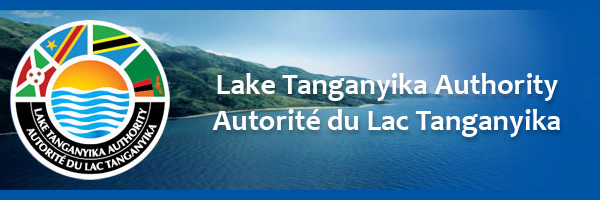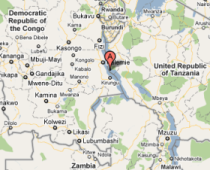Attending the design work of database management system of Lake Tanganyika Monitoring
Event details
When
Sep 21, 2013 12:00 AM
Where
Contact Name
Contact Phone
Attendees
Terms of references
Visiting Scholar Program for MOST-UNEP Joint Project of
Water Quality and Ecosystem Monitoring and Demonstration of New Waste Water Treatment
- Details
Activity: Attending the design work of database management system of Lake Tanganyika Monitoring
Agency: NIGLAS
Duty Station: Nanjing, China
Duration: 3 weeks in September of 2013
- Background
In 2011 the Ministry of Science and Technology (MOST) of the People’s Republic of China and United Nations Environment Program (UNEP) launched 6 projects as Phase II cooperation program in Africa under the framework of Memorandum of Understanding between the United Nations Environment Program and the Ministry of Science and Technology of the People’s Republic of China. The 6 joint projects will tackle sustainable use of water resources, water environment protection, drought early warning system, watersaving agriculture, desertification combating, focusing on the Nile River, Lake Tanganyika and the desert area in the Sahara. Among them the Project 3 - Water quality and ecosystem monitoring and demonstration of new waste water treatments is directly related to the Lake Tanganyika. Nanjing Institute of Geography and Limnology of Chinese Academy of Sciences (NIGLAS), as the state institute unique for lake science, is experienced for undertaking the Phase I: MOST-UNEP cooperation projects on capacity building of monitoring shared water of the Lake Tanganyika. In the Phase II programme, NIGLAS has been entrusted as leading implementing agency for Project 3.
In 2012 NIGLAS and Lake Tanganyika Authority (LTA) signed a MoU on Water Environment Protection and Resources Management in the Lake Tanganyika Basin. The areas of cooperation including:
- Sustainable use of water resources.
- Water quality monitoring and management.
- Waste water treatment
The Parties have agreed to organize the cooperation on the following:
- Organizing and implementing training courses for the riparian countries’ participants in China as well as in Africa;
- Pilot projects in selected riparian countries with the support of Chinese experts;
- Joint research among the Chinese and African scientists on agreed areas;
- Exchange of information and data.
The priority matters and activities pursuant to MoU including:
- Joint research on the status quo of water quality and its evolution induced by human factors in the Lake Tanganyika Basin.
- A pilot of long-term water quality monitoring of the Lake Tanganyika.
- A demonstration system of database management and technical support to system design.
- Objectives of the Assignment
The outcomes of this visiting scholar program are expected to include a framework of database management system and the preliminary database of primary spatial and attribute data in the riparian countries. The spatial data refers to basic geographic information, land use maps, etc. The attribute data refers to social and economic data, hydrological data, meteorological data and water quality data. The visiting scholars are expected to provide an integrated datasheet and a report of the data sources and accuracies. The visiting scholars are also expected to provide recommendations on additional partnerships as well as sources to fulfill the real database.
- Tasks
Working under the supervision and guidance of the Project manager and NIGLAS, the visiting scholars will be expected to:
- Search for relevant data and archive documents of the four riparian countries (Burundi, DR Congo, Tanzania, Zambia) according to the Primary Data List (Annex I,obtained by sending email to the contact person). Each visiting scholar is responsible for two countries.
- Analyze the data sources and select data from the documents.
- Prepare the integrated datasheets on request.
- Prepare a report to the data sources and accuracy.
- Prepare recommendations on additional partnerships as well as sources to fulfill the real database.
- Timeframe and Deliverables
The program will span three weeks. It is planned to start on 1 September and should be finalized by 21 September 2013.
The visiting scholar will be expected to deliver an Excel document with datasheets, a comprehensive report in line with the objectives outlined above, and relevant documents (references) from which the data come.
- Candidate Qualifications
Education:
- Advanced university degree in natural resource management or related areas.
Experience:
- At least three years of experience on water resources or ecosystem protection of Lake Tanganyika and its catchment is an asset.
- Demonstrated experience in areas related to natural resource management, geography or database management.
- Experience in working with/developing environmental monitoring procedures and indicators for aquatic as well as terrestrial systems.
- Experience working with governmental institutions an asset.
- Advanced information technology skills, including Geographical Information System.
- Demonstrated skills in writing and revising report documents.
Language Skills:
- Oral and written fluency in English.
- Sponsorship
The visiting scholars will be granted round-trip international air tickets (economy class), subsidies for accommodation and food during the period in China (about USD 100 per day). Only after at least 75% required information is collected and the preliminary draft is prepared, submitted to and accepted by NIGLAS, the selected experts will travel to China and continue the work.
- Submission of Applications
Qualified candidates may submit a letter of application, up to date Curriculum Vitae, and Application Form before 15 July, 2013. Electronic applications should be sent to schens@niglas.ac.cn or gabriel.hakizimana@lta-alt.org
Document Actions













